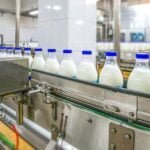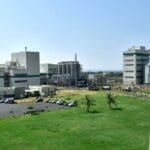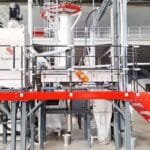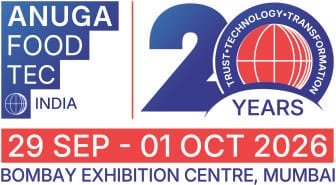The waste generated by poultry production is huge. The efficient and effective disposal of poultry waste will assure the sustainability of poultry production. India has a great opportunity to produce biodiesel from poultry waste and chicken slaughter.
The world is facing an ever-increasing demand for sustainable and renewable energy sources as we strive to reduce our reliance on fossil fuels and combat climate change. Biodiesel, a cleaner alternative to traditional diesel fuel, has gained significant attention in recent years for its potential to reduce greenhouse gas emissions and promote sustainability.
Table of Contents
Poultry Waste: A Hidden Resource
One promising avenue for biodiesel production is the utilization of poultry waste and by-products from chicken slaughter, offering not only an eco-friendly solution but also a way to reduce waste and promote resource efficiency.
The production of poultry can generate a large amount of wastes, including from the hatchery, poultry farm, and processing plant, etc. These could pose a health risk as they may lead to water, air, and land pollution. These wastes can be disposed of by recycling or processing. The crude protein and crude fat in hatchery waste can be used to make animal feed. The use of chemical fertilisers will be reduced if the dried poultry waste/litter is properly processed.
Chicken Slaughter By-Products: An Untapped Resource
India sees great potential to produce biodiesel from poultry waste and chicken slaughter through the transesterification process. India wants to take advantage of this opportunity by including 5% of biodiesel into its diesel, which will reduce its dependence on crude oil imports. The sustainability of poultry production will also be assured through efficient and effective disposal of poultry waste.
Researchers Extracted Biodiesel from poultry waste and chicken slaughter
A team of researchers, led by John Abraham of the School of Bioenergy and Farm Waste Management at Kerala Veterinary and Animal Sciences University, Wayanad (KVASU), have quietly extracted biodiesel from poultry waste and chicken slaughter, using a prototype plant that costs around Rs.12 lakh.

They have been field testing this chicken-based fuel for several months in the old multi-utility vehicle (MUV) of their university, which is used all over the hill district. It is currently pending patent application by the KVASU team. KVASU plans to assume the role of the technology provider.
Researchers also ran biodiesel through testing at the Bharat Petroleum Corp Limited (BPCL’s quality control laboratory at Kochi refinery. The tests proved that the fuel met strict BIS standards. Dr John said that the biodiesel from poultry waste was also more efficient than petro-diesel’s 64 cetane values. It’s also relatively cheap. Even with economies of scale, this fuel costs only Rs.32 per litre at the pilot plant (whereas petro diesel can cost Rs.55 to Rs.55). It is currently being tested in a 50/50 ratio with petro Diesel in unmodified diesel engines. Dr John stated that it could be used with engine modifications to make it the sole fuel.
How the idea was discovered?
The idea was discovered by a number of entrepreneurs, including Kozhikode Corporation, registered slaughter waste collectors. Already, the team has provided a project report on a plant that a consortium will use. It can process up to 40 tonnes of meat waste per day and generate around 1,000 litres of poultry fuel each day. This project is coming up with the collaboration of Kozhikode Corporation and the District Suchitwa Mission.
Dr John’s 2012 doctoral thesis was on alternative fuels at Tamil Nadu Veterinary Sciences University. He said that chicken-powered biodiesel has great potential. “In Kerala alone, 5.3 lakh chickens are killed each day. It is equivalent to 350 tonnes of waste per day that poses a grave threat to the environment.
He said that if the waste is heated at high temperatures, 10% of the volume becomes extractable oil. Another 30% can be converted into animal and pet feed ingredients, with 62% protein content, which costs Rs.20 per kilogram to produce. He said that almost 96% of the oil could be made into biodiesel, and a small amount could be turned into glycerine which could be used to make soaps or cosmetics.
Why only the poultry waste?
On average, 10 kg of chicken waste yields one litre of oil. Why only the poultry waste? “All ruminants have bio-hydrogenation pathways which saturate fatty acid. Saturated fats remain solid at room temperature. But monogastric animals like chickens lack this pathway. Their fats are richer in unsaturated fatty acid, which turns to oil at room temperatures. Dr John stated that biodiesel is only possible from these oils.
Benefits of Poultry Waste Biodiesel
1. Waste Reduction: The utilization of poultry waste and chicken slaughter by-products for biodiesel production reduces the environmental impact of these industries by minimizing waste and emissions.
2. Energy Independence: Biodiesel from poultry waste reduces our reliance on fossil fuels, promoting energy security and reducing greenhouse gas emissions.
3. Circular Economy: Transforming waste into biodiesel creates a circular economy where resources are continuously reused, reducing the demand for virgin materials. 4. Rural Economic Development: Biodiesel production from poultry waste can stimulate economic growth in rural areas, offering new revenue streams for farmers and rendering facilities.
Conclusion
Biodiesel from poultry waste and chicken slaughter by-products represents a sustainable and environmentally responsible solution to the challenges posed by these industries. By converting waste into a valuable resource, we can reduce waste, cut greenhouse gas emissions, and promote energy independence. As we continue to explore innovative ways to address our energy and environmental challenges, biodiesel production from poultry waste stands out as a promising avenue for a more sustainable future.
Sugguested Reading
- R. Prabakaran & S. Ezhil Valavan; “Wealth from poultry waste: an overview”; World’s Poultry Science Journal, Vol 77 No 2; pp 389-401
- Abraham, J. 2014; “Production of Bio-diesel from Poultry Farm Waste” PhD diss.; Tamil Nadu Veterinary and Animal Sciences University, Chennai, India.
- http://www.thehindu.com / The Hindu / Home> National> Kerala / by E.M. Manoj / Kalpetta – May 29th, 2016
- Photo courtest the Hindu















